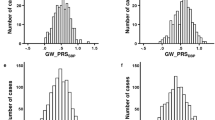Abstract
Hypertension is an important public health problem affecting more than 50 million individuals in the US alone. The most common form, essential hypertension, results from the complex interplay between genetic predisposition and environmental influences. In contrast, monogenic (mendelian) forms of hypertension are caused by single gene mutations that are influenced little, if at all, by environmental factors. Most monogenic forms of hypertension affect either electrolyte transport in the distal nephron, or the synthesis or activity of mineralocorticoid hormones, leading to the common pathogenic mechanisms of increased distal tubular reabsorption of sodium and chloride, volume expansion and hypertension. In young patients with a family history of hypertension who present with severe or refractory hypertension and characteristic hormonal and biochemical abnormalities, the differential diagnosis should include monogenic forms of hypertension. Genetic testing, which is increasingly available, can facilitate timely diagnosis and treatment of these relatively uncommon disorders, such that the underlying defect can be corrected or ameliorated and the long-term consequences of poorly controlled hypertension prevented.
Key Points
-
Monogenic hypertension is caused by single gene mutations and accounts for a spectrum of familial forms of elevated blood pressure
-
Monogenic forms of hypertension share a common pathway of increased reabsorption of sodium and chloride in distal tubules and volume expansion, which suppresses plasma renin activity
-
These disorders should be suspected in young patients with a family history of hypertension who present with severe or refractory hypertension and characteristic hormonal and biochemical abnormalities
-
Timely diagnosis using genetic tests might enhance the success of therapies that target the underlying defects and thus prevent long-term consequences of uncontrolled hypertension
This is a preview of subscription content, access via your institution
Access options
Subscribe to this journal
Receive 12 print issues and online access
$209.00 per year
only $17.42 per issue
Buy this article
- Purchase on Springer Link
- Instant access to full article PDF
Prices may be subject to local taxes which are calculated during checkout



Similar content being viewed by others
References
Lalouel JM (2003) Large-scale search for genes predisposing to essential hypertension. Am J Hypertens 16: 163–166
Samani NJ (2003) Genome scans for hypertension and blood pressure regulation. Am J Hypertens 16: 167–171
Mosso L et al. (2003) Primary aldosteronism and hypertensive disease. Hypertension 42: 161–165
Mulatero P et al. (2005) Diagnosis of primary aldosteronism: from screening to subtype differentiation. Trends Endocrinol Metab 16: 114–119
Schwartz GL and Turner ST (2005) Screening for primary aldosteronism in essential hypertension: diagnostic accuracy of the ratio of plasma aldosterone concentration to plasma renin activity. Clin Chem 51: 386–394
Nishizaka MK et al. (2005) Validity of plasma aldosterone-to-renin activity ratio in African American and white subjects with resistant hypertension. Am J Hypertens 18: 805–812
Lifton RP et al. (1992) Hereditary hypertension caused by chimaeric gene duplications and ectopic expression of aldosterone synthase. Nat Genet 2: 66–74
Milford DV (1999) Investigation of hypertension and the recognition of monogenic hypertension. Arch Dis Child 81: 452–455
Rich GM et al. (1992) Glucocorticoid-remediable aldosteronism in a large kindred: clinical spectrum and diagnosis using a characteristic biochemical phenotype. Ann Intern Med 116: 813–820
Stowasser M et al. (1992) Familial hyperaldosteronism type II: five families with a new variety of primary aldosteronism. Clin Exp Pharmacol Physiol 19: 319–322
Lafferty AR et al. (2000) A novel genetic locus for low renin hypertension: familial hyperaldosteronism type II maps to chromosome 7 (7p22). J Med Genet 37: 831–835
New MI et al. (2005) Monogenic low renin hypertension. Trends Endocrinol Metab 16: 92–97
Biglieri EG and Kater CE (1991) Mineralocorticoids in congenital adrenal hyperplasia. J Steroid Biochem Mol Biol 40: 493–499
Geller DS et al. (2000) Activating mineralocorticoid receptor mutation in hypertension exacerbated by pregnancy. Science 289: 119–123
Rafestin-Oblin ME et al. (2003) The severe form of hypertension caused by the activating S810L mutation in the mineralocorticoid receptor is cortisone related. Endocrinology 144: 528–533
Mune T et al. (1995) Human hypertension caused by mutations in the kidney isozyme of 11 beta-hydroxysteroid dehydrogenase. Nat Genet 10: 394–399
Whorwood CB et al. (1993) Licorice inhibits 11 beta-hydroxysteroid dehydrogenase messenger ribonucleic acid levels and potentiates glucocorticoid hormone action. Endocrinology 132: 2287–2292
Ulick S et al. (1992) Cortisol inactivation overload: a mechanism of mineralocorticoid hypertension in the ectopic adrenocorticotropin syndrome. J Clin Endocrinol Metab 74: 963–967
Shimkets RA et al. (1994) Liddle's syndrome: heritable human hypertension caused by mutations in the beta subunit of the epithelial sodium channel. Cell 79: 407–414
Hansson JH et al. (1995) Hypertension caused by a truncated epithelial sodium channel gamma subunit: genetic heterogeneity of Liddle syndrome. Nat Genet 11: 76–82
Palmer BF and Alpern RJ (1998) Liddle's syndrome. Am J Med 104: 301–309
Wilson FH et al. (2001) Human hypertension caused by mutations in WNK kinases. Science 293: 1107–1112
Choate KA et al. (2003) WNK1, a kinase mutated in inherited hypertension with hyperkalemia, localizes to diverse Cl−-transporting epithelia. Proc Natl Acad Sci USA 100: 663–668
Kahle KT et al. (2003) WNK4 regulates the balance between renal NaCl reabsorption and K+ secretion. Nat Genet 35: 372–376
Martin RM et al. (2003) P450c17 deficiency in Brazilian patients: biochemical diagnosis through progesterone levels confirmed by CYP17 genotyping. J Clin Endocrinol Metab 88: 5739–5746
Author information
Authors and Affiliations
Corresponding author
Ethics declarations
Competing interests
The authors declare no competing financial interests.
Rights and permissions
About this article
Cite this article
Garovic, V., Hilliard, A. & Turner, S. Monogenic forms of low-renin hypertension. Nat Rev Nephrol 2, 624–630 (2006). https://doi.org/10.1038/ncpneph0309
Received:
Accepted:
Issue Date:
DOI: https://doi.org/10.1038/ncpneph0309
This article is cited by
-
Endocrine causes of hypertension: literature review and practical approach
Hypertension Research (2023)
-
Meta-analysis identifies common and rare variants influencing blood pressure and overlapping with metabolic trait loci
Nature Genetics (2016)
-
An unusual case of hyperkalaemia in infancy: answer
Pediatric Nephrology (2011)
-
Is hypertension an immunologic disease?
Current Cardiology Reports (2008)
-
Tubuläre Nierenerkrankungen
Wiener klinische Wochenschrift Education (2007)



